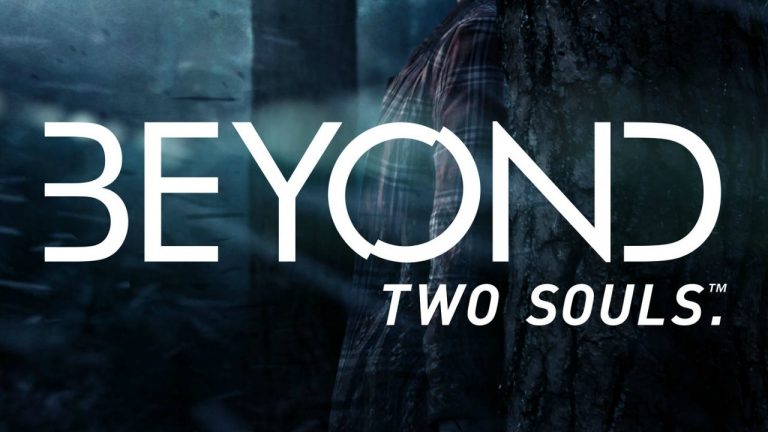The Tribeca Film Festival was in full swing last week in Mahattan and the second ever video game participant (L.A. Noire being the first), Beyond: Two Souls, debuted thirty minutes of gameplay footage and a new trailer. Any hope that Quantic Dream had of being noted by the swarms of film press at the event was seemingly squashed as the game was treated by most of film goers as any video game is, ignored. There were game and tech journalists on hand for the solitary game-focused event of the festival, but any serious blend of the two mediums that was anticipated did not happen.
It was a long shot, a poorly calculated shot for Beyond: Two Souls to have a presence at the Tribeca Film Festival. Pandering toward an audience that was unlikely to give it much credit, it almost felt like a high school hierarchy with the nerd going to hang out at the jock’s table during lunch, desperate for acceptance. A not-so-secret passion to be a film director has been a long standing accusation of developer David Cage, the man behind Beyond: Two Souls and Quantic Dream’s previous release, Heavy Rain. Games journalists have often lashed out at Cage’s seemingly delusional act of being a filmmaker stuck in the world of games. The Tribeca Film Festival presence and Cage’s most recent act of sending mock scripts for Beyond: Two Souls to journalists, go a long way in validating these claims about Cage.
The real truth behind all of this is that David Cage gets made fun of a lot because he is easy to make fun of. As someone who marches to the beat of different drum, Cage’s comments often are quickly dismissed and ignored. What is sad about the instantly dismissive attitude which the simmering pot of venomous haters constantly have, is that while Cage is very single-minded in his story-centric approach, he is also speaking truths about an industry that often wallows in it befuddled, fumbled attempts at storytelling.
Taking a step back from the hurricane of accusations and criticisms of Cage’s games not being game-y enough, there are things by which to be impressed. It is not about the Tribeca Film Festival, or a 2,000 page scripts, it is not even about Willem Dafoe and Ellen Page. No, the things that are being accomplished in Beyond: Two Souls are things that Quantic Dream are forgetting to mention.
So often in the video game industry, we talk about the union of story and games. Story is a divisive quagmire for any title, it is generically constructed for easy digestion by games like Borderlands or Halo, overwritten and convoluted by games like Assassin’s Creed or Crysis, or artistically left ambiguous by game Journey or Limbo. No matter how it is handled, all too often we’re left shrugging our shoulders or giving a gentle nod. There are standouts of course, like The Walking Dead or the recent BioShock Infinite. Games like this attempt to tackle story elements straight on, but both leaned on genre stereotypes to make their games more commercially acceptable. BioShock Infinite used a popular brand name and first person shooter mechanics to make itself easily marketable, meanwhile The Walking Dead employed the most popular monsters of the day, and shared a name with what is presently the most popular non-superhero comic book franchise.
That is not to take away from either Telltale or Irrational’s success, both games are fantastic and deserve praise. It does, however, point out Beyond: Two Souls’ brave uniqueness in the game’s industry. Quantic Dream had a hit with Heavy Rain, and like most developers could have cashed in on name recognition and an establish franchise tent pole. Instead, they opted to do a completely new game, allowing their eccentric developer large amounts of creative freedom. They spent money to get top Hollywood talent, even though people tend to buy games based on characters rather than their voices. They allowed Cage to put a female protagonist front and center, even went so far as putting her on the box. Instead of putting their game in a first-person shooter or point-and-click category for easy digestion, Beyond: Two Souls is only being qualified as an “Adventure” game, and Cage might even wince at that. It is all too often that when a game gets released, we all know what acronyms and descriptors to accurately quantify the game’s contents. Beyond: Two Souls is basically living in it’s category of a “Quantic Dream/David Cage game”.
Less than 24 hours after the release of the game’s new trailer, Ubisoft’s Watch Dogs followed suit. The trailer for the computer-hacking, espionage, action game was like a fan boy narrative checklist. Moody, deep male voice? Check. Pan over publicized location? Check. Guy blowing things up, causing chaos, being a bad ass? Check. An action-filled climax, talking about getting even/righting a wrong/killing the guy that needs to be killed? Check. Gameplay-wise, Watch Dogs looks like it could be interesting and different but I could already hear reviews typing “Decent, albeit generic story” as if it was as inevitable as paying taxes, i.e. the price we pay for AAA games.
Do we know Beyond: Two Souls will be good? No. Is it gimmicky in its own eye rolling way? Definitely. But in an industry that lives and dies by its descriptors, Beyond: Two Souls at least is trying a new angle. I don’t understand or want to understand why Quantic Dream feels the need to pass the game off as a film, it is annoying to say the least, but I am excited that amidst the multi-gun-wielding, gravely-talking, explosion-inducing, shoot-em-up-beat-em-up games this year Beyond: Two Souls is a AAA game which seeks to attract fans with a different pitch..


0 Comments